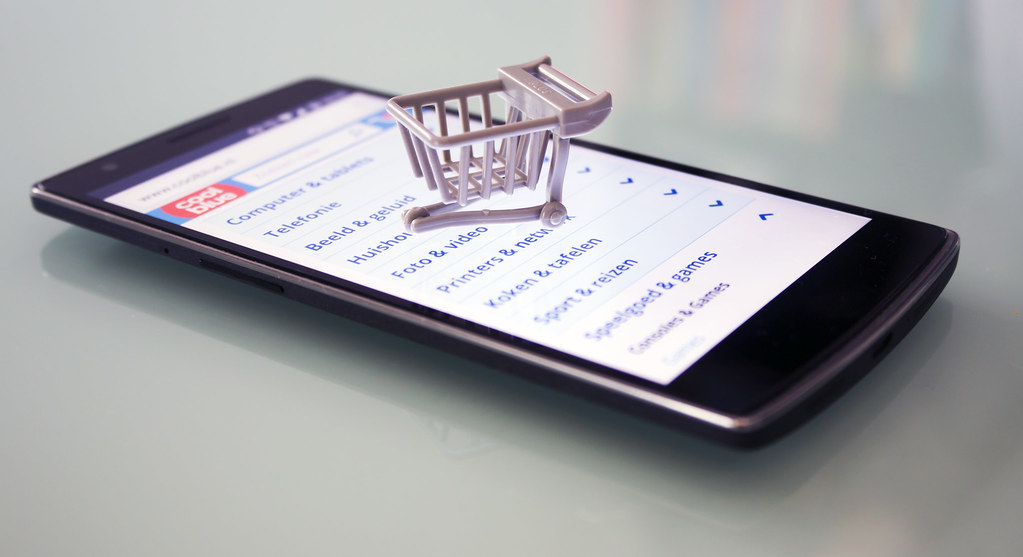I used to be semi-addicted to online shopping. Spending multiple hours a day on apps or websites looking at things I wanted to buy and buying things randomly. Soon there was very little space left in my room the longer I maintained this habit. I always had multiple tabs with webshops open, on my computer or my phone. For a long time it was my go-to method to make myself feel better. Granted, I was not addicted to the point that it financially ruined me, but the complusive need to look and think about purchasing something was definitely there. Luckily I got rid of that habit a few years ago, but when the pandemic hit I found myself slipping back into some of my old routines. So called ‘retail therapy’ has surged in recent years.
What is ‘retail therapy’?
Margaret G. Melroy describes how ‘retail therapy’ is often applied to the notion of trying to cheer one-self up through the purchase of self-treats. The negative moods that lead to retail therapy have been associated with impulsivity and a lack of behavioral control (Melroy & Ataley). With online retail therapy, the physical and practical effort involved in shopping has been reduced to finger clicks (Russel & rogers).

Targeted social media ads
In an article on retail therapy from Creatuity, the positive psychologic aspects of online shopping are discussed: the fact that online shopping is more convient, time saving and more varied in options. Furthermore, that one can avoid crowds and social interaction is also named as a benefit, and personally it is one of the reasons I like to shop online.
Advertising through social media has grown with trends in consumer behaviour, fifteen percent of adults in the US alone reported following links from social media ads to make purchases (Russel & rogers). Russel and Rogers argue that certain risk factors exists within social media advertising that make it a postitive engagement for some, but damaging for others. This also has mostly to do with self-regulation.
Online retail websites and advertisements create an environment that encourage individuals to purchase and weaken self-regulation resources by providing round-the-clock and unlimited accesibility of retail options, often offering ‘one-click’ purchases. Advertising pop-ups, timed discount offers and graphical interactive displays of products are also tactics used to encourage purchases (Rose & Dhandayudham). That kind of environment makes it difficult to resist impulsive shopping and buying, which in turn could pose a risk to emotional health. This is especially true for people aged between 18 and 29, who also have a higer usage of social media itself (Russel & Rogers). Besides that, women are also more likely to partake in retail therapy to combat negative mood states (Rose & Dhandayudham).

My own experiences and thoughts
The investigation done by Russel and Rogers is very compelling and caused me to think more about my own (lack of) self-regulation when it comes to social media ads and online shopping. I find that I am especially vulnerable to timed discount offers or notification alerts that new stock has been added to a particular webshop I like.
Another article about online shopping addiction and ways to reconsider formed habits described methods that also helped me a lot. Things like deleting apps like Ebay, Zalando and other shopping apps, or unsubscribing from mailing lists. That way a lot of temptation is taken away and I won’t be constantly tempted. I can see that my self-regulation, especially when I was younger, was not as strong as I would have liked it to be. But I am aware of that now and have more caution when I am feeling anxious or sad and I’m browsing through websites or scrolling on Instagram.
References
Alissa Russel & James Rogers, Can social media ads facilitate retail therapy? An investigation of psychological outcomes of ad ingagement in college females, Marketing Management Journal 29:2 (2019) 111-121.
A. Selin Atalay & Margaret G. Melroy, Retail therapy: A strategic effort to improve mood, Psychology & marketing 28:1 (2011) 638-659.
Susan Rose & Arun Dhandayudham, Towards an understanding of Internet-based problem shopping behaviour: the concept of online shopping addiction and its proposed predictors, Journal of Behavioral Addictions 3:2 (2014) 83-89.
DOI: 10.1556/JBA.3.2014.003
Online resources
Huffpost (2020) Online Shopping Addiction And The Pandemic: Here’s How 2 Women Quit
https://www.huffpost.com/entry/online-shopping-pandemic_l_5f29c764c5b68fbfc888e63e (accessed semtember 20th 2021)
Creatuity (2018) Retail Therapy: The psychology of happy shoppers
https://creatuity.com/retail-therapy-the-psychology-of-happy-shoppers/ (accessed september 20th 2021)


Recent Comments